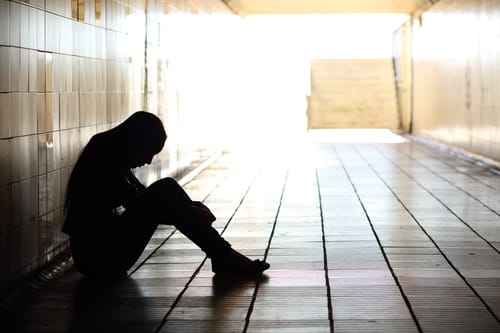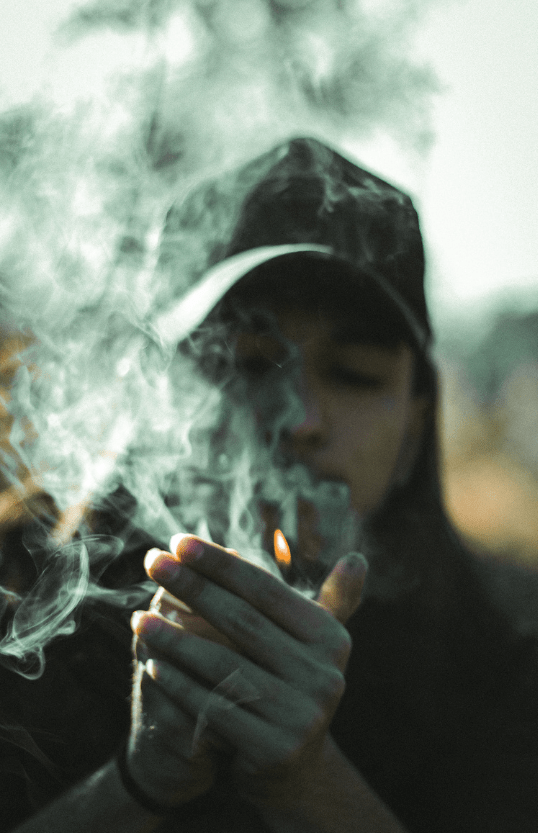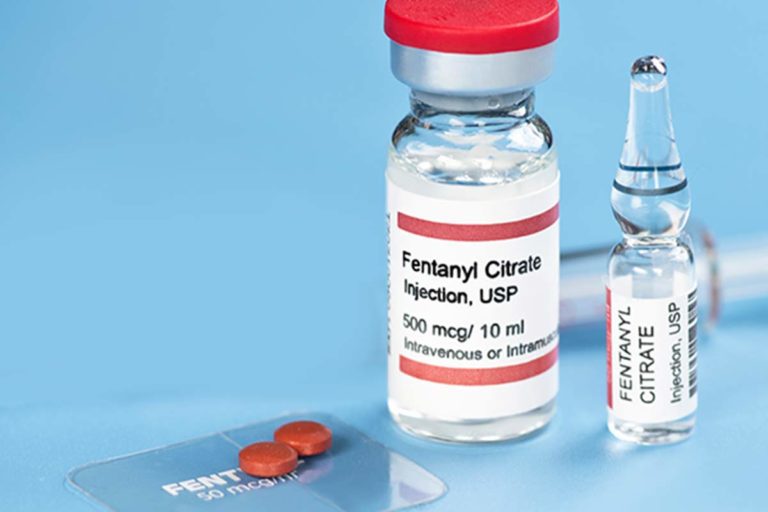Drug abuse of any kind can lead to a number of negative side effects on a person’s health and overall well-being. But is the development of bipolar disorder and drug abuse among these effects? Is it possible for bipolar disorder and drug abuse to be connected? To determine this, one must first understand what drug abuse is, how it impacts a person’s body and mind, and how bipolar disorder is developed.
This article will explore the impact of bipolar disorder and drug abuse, the side effects of drug abuse, and the effects of substance abuse on bipolar disorder.
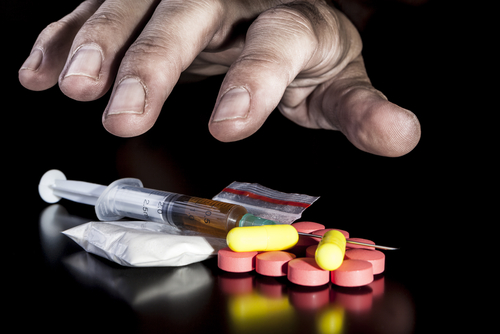
The Impact of Drug Abuse
Abusing drugs can significantly impact a person’s health, wellness, and life in general. However, many Americans often misunderstand drug abuse and its numerous effects, which can perpetuate harmful attitudes and behaviors toward individuals who struggle with addiction. This can be the same for both bipolar disorder and drug abuse. Both struggles should be given care, respect, and empathy.
What is Drug Abuse?
When asked what drug abuse is, most people will likely respond with an answer that resembles something closer to drug addiction than drug abuse. Drug abuse occurs anytime a person consumes any drug in excess, not as prescribed or instructed, or any illegal drug.
Because of this, drug abuse applies to a variety of situations. For example, if someone consumes an excess of ibuprofen for a headache, their drug use can be considered abuse. Furthermore, if a person consumes cannabis in a state where cannabis is still illegal, their drug use is also drug abuse – even if it might be legal on the other side of a state line.
Side Effects of Drug Abuse
The side effects of drug abuse can have an extremely large variation, depending on what substance was abused, the amount abused, how long the substance was abused, and more. However, nearly every kind of drug abuse often has several serious consequences. Drug abuse can impact a person’s relationships, occupation, finances, education, and more.
One of the most significant impacts drug abuse can have on a person is on their health. These impacts will vary by substance, but there will always be some impact. Drugs of any kind come with specific instructions for use, whether by prescription or over-the-counter. These instructions help to minimize the impact of the side effects nearly every drug comes with. By ignoring these instructions, one is more likely to deal with the side effects of the substance they are abusing.
Additionally, illegal drugs are often illegal because of their effects and side effects. Substances like methamphetamine and heroin can cause numerous health complications, including a higher likelihood of developing certain diseases, developing an addiction, or overdosing.
Ignoring a drug’s legal status or its consumption instructions can lead to severe consequences for a person’s health, including a heightened potential for becoming unconscious or even dying.
Drug Addiction and the Brain
Sadly, no matter what substance is consumed, drug abuse often leads to drug addiction. This can have a significant impact on the brain. When a person develops a drug addiction, their brain is restructured to reinforce the consumption of whatever substance they are addicted to. In general, this means the brain makes a person more likely to engage in addictive behavior, forcing them to seek out immediate, usually unhealthy pleasures.
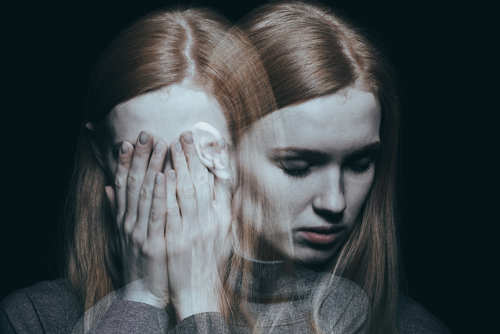
What is Bipolar Disorder?
There are many perceptions and misunderstandings held by the average American regarding what bipolar disorder is and is not. However, bipolar disorder is a mood disorder that often causes intense mood swings. During these mood swings, a person with bipolar disorder experiences an extreme intensity of emotion or emotions.
The mood swings typically caused by bipolar disorder are often split into three categories: a manic episode, a depressive episode, or a mixed episode. In a manic episode, a person feels extreme joy and energy. In a depressive episode, a person feels sadness, hopelessness, or indifference. However, in a mixed episode, a person will often experience symptoms of both a manic and depressive episode, which can create some odd yet intense moods and emotions.
Types of Bipolar Disorder
Bipolar disorder usually affects every person differently. Despite this, an individual’s bipolar disorder typically falls into one of three types of bipolar disorder:
- Bipolar I disorder
- Bipolar II disorder
- Cyclothymic disorder
Bipolar I disorder is a form of bipolar disorder that includes manic episodes that last seven days or longer or manic symptoms that may require hospitalization. Depressive episodes are also common with this type, lasting around two weeks.
Bipolar II disorder is a type of bipolar disorder that includes more depressive episodes than manic episodes. Frequently, individuals with bipolar II disorder will experience hypomanic episodes, which are much less severe than manic episodes.
Cyclothymic disorder is a type of bipolar disorder that includes hypomanic and depressive symptoms, not episodes. These symptoms typically linger for around two years in adults and about a year for children and teenagers.
Are Bipolar Disorder and Drug Abuse Connected?
Unfortunately, the exact cause or causes of bipolar disorder are unknown. However, researchers have identified what factors can play a role in a person’s likelihood of developing bipolar disorder and drug abuse. These factors can include a person’s genetics, brain structure, brain function, and environment.
Brain structure and function are two of the most relevant factors for bipolar disorder and drug abuse. Drug abuse, especially drug addiction, can have an immense impact on the structure and function of the brain. Not only does drug addiction rewire the brain’s reward system to encourage addictive behavior, but drug addiction can also rewire areas of the brain that impact a person’s mood and behavior. Because of this, it is possible for drug abuse and addiction to restructure the brain in a way that can lead to the development of bipolar disorder.
However, drug abuse does not always lead to bipolar disorder. In fact, the order can be reversed, and an individual’s bipolar disorder can lead to drug abuse and addiction. This is often due to the intensity of one’s mood swings and attempts to self-medicate.

Effects of Bipolar Disorder and Drug Abuse Together
Bipolar disorder and drug abuse are two complex and challenging conditions that can occur together and interact with each other in various ways. The use of drugs or alcohol can have a significant impact on the course and severity of bipolar disorder symptoms. Various substances can impact bipolar disorder differently, and it’s essential to understand the varying effects of these substances. Here are some of the most common substances and how they affect bipolar disorder:
Alcohol and Bipolar Disorder
Bipolar disorder and alcoholism are often co-occurring, with research indicating that nearly half of the individuals diagnosed with bipolar disorder have also experienced an alcohol use disorder at some point. This is likely because alcohol is often used to cope with the extreme mood swings and symptoms associated with bipolar disorder. Drinking alcohol can also significantly impact an individual’s mood stability. It may cause them to become more irritable, volatile, and aggressive, leading to what some refer to as “bipolar rage episodes.”
Marijuana and Bipolar Disorder
Similar to alcohol, marijuana can have a significant impact on bipolar symptoms. While it may have a calming effect that can aid in managing anxiety or manic episodes, it can also lead to severe anxiety, paranoia, and panic. Studies have shown that marijuana can trigger psychotic symptoms in those with bipolar disorder. Marijuana use can increase the likelihood of progressing into psychosis, especially if they are vulnerable to mental health conditions.
Stimulants and Bipolar Disorder
Stimulants are a popular choice for individuals seeking to increase mental energy and focus and induce feelings of euphoria or empowerment that can make challenging activities more enjoyable and less stressful. The use of stimulants can pose significant risks. Even those managing their symptoms with mood-stabilizing medications can experience the triggering of manic episodes and symptoms.
Searching for Bipolar Disorder and Drug Abuse Treatment? Contact Knoxville Recovery Center
Knoxville Recovery Center provides comprehensive, individualized, and holistic treatment plans for those struggling with bipolar disorder and drug abuse, as well as many other mental health conditions. Our team of addiction and mental health healthcare professionals offers a variety of addiction treatments and therapies that can address one or both disorders. For more helpful addiction recovery and mental health services, call us today.




